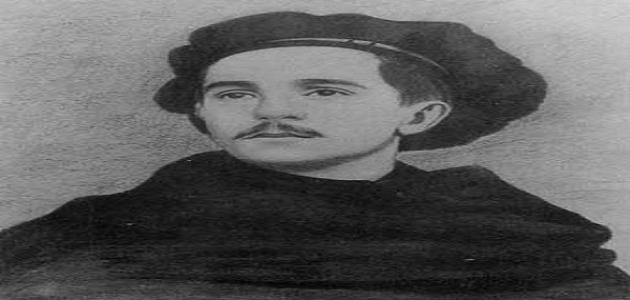First of all, I would like to point out that occasional poetry is all poetry that has been associated with a religious, national or national occasion, meaning that the validity of this type of poetry expires as soon as the occasion for which it was organized ends. The German poet Goethe defended this type of poetry and considered that great poetry is Poetry of occasions, and he emphasized this matter in his book “Poetry and Truth,” saying with bitterness: “The poetry of the occasion, which is the most original of all types of poetry, has lost all appreciation since the nation began not paying attention to its supreme value.”
When looking at the stages of the development of world literature and its course, we come to the conclusion that occasional poetry was present and self-contained in Western literature, just as it was known even in ancient Greek literature, and it still has its supporters and followers in modern European and American literature. Some scholars attribute the emergence of occasional poetry to Sanskrit texts. In a group presented by Raja Sekhara, we find a wonderful text related to this type of poetry, where he says: “There are four types of poets: the one who does not see the sun, the one who is strict, the one who is circumstantial, and finally there is the poet of the occasion. As for the poet who does not see the sun, he resides at the bottom of a cave inside a subterranean house and composes poems in a state of absolute concentration. All moments belong to him. As for the studious poet, he is the one who organizes poems through his devotion to poetic activity without trying at all to focus, and he also owns all his moments. But the circumstantial poet is organized when his systems do not interfere with his work in the court or prevent him from devoting himself to poetry with a barrier, and every moment he thinks about creates a time for him to create my poetry. Finally, the poetry of occasions, which is organized in connection with some events, time for him is determined by the circumstance itself. The poet who, when creating his impact, does not destroy his inspiration or regret, but he is the master of the group of poets, while the others are his servants.
Read also:Summary of the thief and dogs Naguib MahfouzGreek literature knew the poets who used to sing their poems on various occasions and holidays that were celebrated by the peoples of the region, and there were competitions among them to obtain prizes that were allocated for this purpose. To these peoples are added the literature of Europe and America, especially in its early formative stages, and some traditions are still followed to an extent. Now, but it bears different names such as the literature of resistance, the literature of absurdity, the absurd, rebellion, and anger. In Arabic literature, this type of poetry was tyrannical and is still present in literary and poetic gatherings, and there is no doubt that the quality of the occasion is what dictates the forms of their poems for poets, as it was exciting at the same time. The confrontations between the poets themselves, so you find them competing in sophistication and exaggerating in the use of creative improvements and graphic structures, and they may sometimes jostle each other in their quest to seize a phrase or a single word that they include in their poems directed to praise a king, a prince, or a leading figure, and other occasions that require that, such as weddings, funerals, and religious or national holidays. Despite this, critics differed in naming this color of poetry, and they asked whether it belongs to literature or not This question raised several discussions, but they did not reach a conclusive conclusion. Accordingly, poets and critics were divided into two groups.
The first: He believes that all poetry is an occasion and the occasion leads to a large production, and if there is a large production, it is easy to choose the quality from the quantity, then on every occasion it is strengthened and multiplied and the field of speech expands in it, especially with encouragement and rewards, while the second group believes that the poetry of occasions is a kind of literature The grandiose whose elements of revelation are limited to narrow issues determined by time and place, and therefore it does not come spontaneously and is not out of the abundance of the mind. Therefore, this team believes that this type of poetry has nothing to do with literature, and therefore it must be rejected even if its companions excel in what they write. One of the biggest exponents of occasional poetry is the “Dawat al-Haqq” magazine, which wrote an editorial in its third issue of 1959, in which its author spoke, “ Neighborhood Boy” about the poetry of occasions, and he concluded that it is legitimate poetry, and that it is a kind of poetry that expresses the facts of life, and that the clues that open up to seize literary prizes are clues whose owners follow a legitimate path that the first poets took. The “neighborhood boy” who openly says that he does not accept some of what is said about those poets who produce occasional poems, do not deserve to be counted among the group of writers.
Read also:Poems of Hamad Al-SaeedOn the other hand, some of them reject the poetry of occasions because it goes to extremes to the point where the production of its companions falls in depravity and vulgarity, as evidenced by the fact that the poet himself returns to his production with the same words and meanings, and perhaps with the same rhymes if the occasion returns itself. Obtaining gold or a job for which the praiseworthy person is grateful to him. Rather, they consider his poetry an affront to the dignity of poetry and poets. Therefore, this color of poetry dies with the death of the occasion or with the death of the praiseworthy, and thus it is forgotten. Based on the above, we find that occasional poetry suffered more rejection than acceptance. Therefore, the true poet had to harness his poetry for what was created for him with honesty, feeling, and nobility of emotions, which are among his most important characteristics.
Read also:Characteristics of public speaking: the art of public speaking and speakingAnd God said the truth: “As for the scum, it vanishes with nothingness, and as for what benefits people, it stays on the earth.”
Written by the poet Najat Al-Majid









